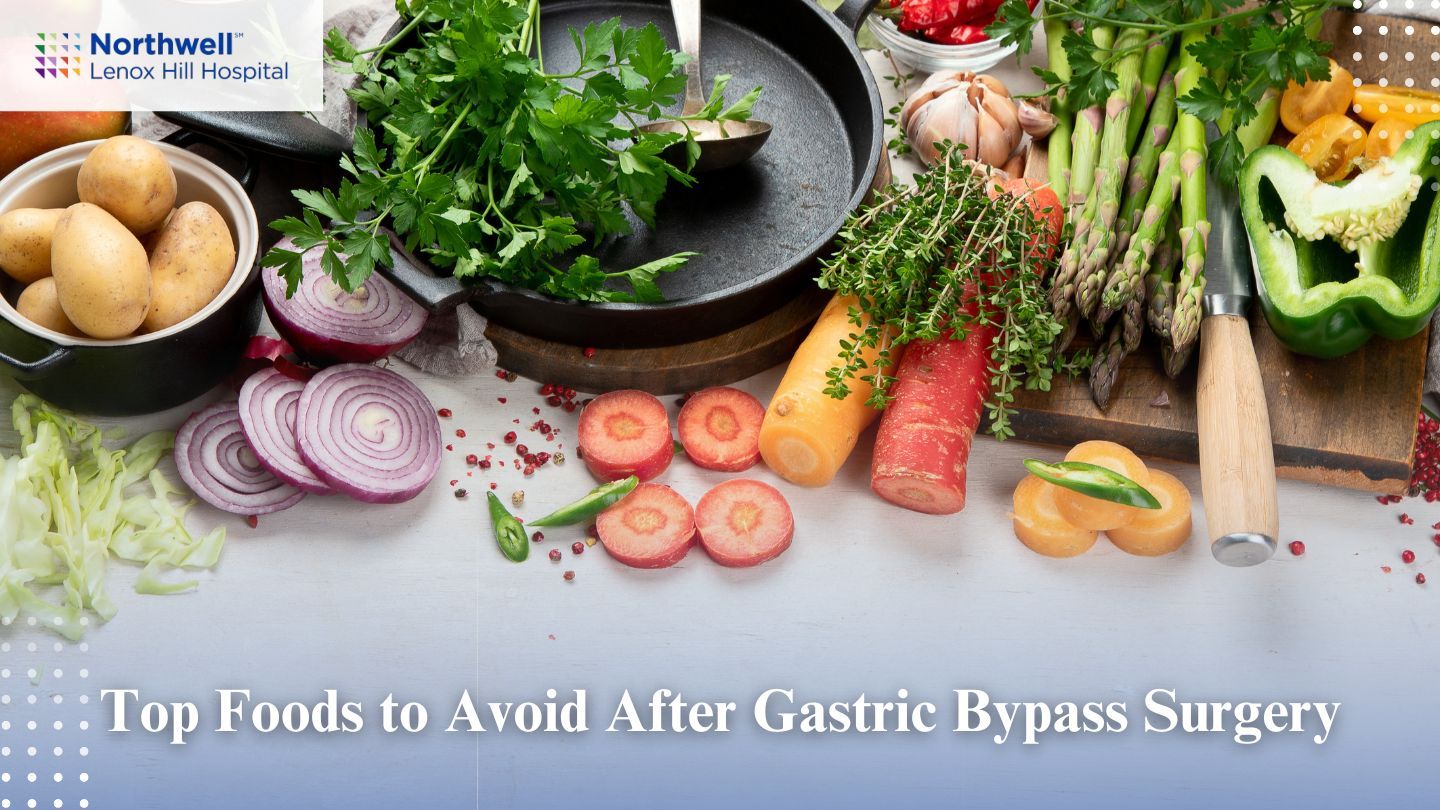
Top Foods to Avoid After Gastric Bypass Surgery
After gastric bypass surgery, choosing the right foods is crucial to ensure a smooth recovery and successful weight loss journey. Your smaller stomach and altered digestive system require a carefully managed diet to avoid complications and achieve your weight loss goals. Certain foods can hinder your recovery and affect your ability to lose weight safely. This guide outlines the top foods to avoid after bariatric surgery and offers helpful tips for your post-gastric bypass diet.
Key Takeaways
- Following dietary guidelines after gastric bypass surgery is essential for a smooth recovery and successful weight loss journey.
- Avoiding certain foods like tough meats, sugary drinks, and spicy foods can prevent complications and support your weight loss goals.
- Opt for nutrient-dense and easily digestible foods to maintain a healthy digestive system and avoid weight regain.
1. Tough Meats and Fibrous Vegetables
After gastric bypass surgery, avoid tough meats like red meat and fibrous vegetables such as raw broccoli or celery. Consuming raw vegetables can be particularly challenging due to their difficulty in digestion. Instead, opt for cooked, soft vegetables like beans or peas to aid in recovery. These foods are hard to chew and digest, which can strain your smaller stomach and lead to blockages.
Substitute tough meats with lean proteins like:
- Tender chicken
- Lean beef
- Fish
- Cottage cheese
Opt for soft vegetables like:
- Cooked carrots
- Soft peas
- Steamed spinach
Read more: 5 High Protein Foods For Bariatric Patients
2. High-fat and Fried Foods

Fried foods and fatty options, such as bacon or sausages, can cause dumping syndrome—a condition where food moves too quickly through your small intestine. It is crucial to transition to solid food carefully to avoid complications and ensure a smooth recovery. Symptoms may include nausea and stomach discomfort.
Replace fried foods with:
- Grilled or baked chicken
- Steamed fish
- Legumes like beans or lentils
Choosing low-fat options will help you avoid discomfort and support weight loss goals.
3. Sugary Drinks and Empty Calories
Sugary drinks, including fruit juices and sodas with corn syrup, can lead to weight gain and hinder your post-bariatric surgery diet. Foods high in empty calories, such as chips, pastries, and candy, offer little nutritional value and should be avoided.
Instead, focus on nutrient-dense foods:
- Low-sugar dairy products
- Fresh fruits (in moderation)
- Whole grains (as recommended)
4. Caffeinated and Carbonated Beverages

Caffeinated beverages like coffee or energy drinks can irritate your smaller stomach and increase gastric acid, while carbonated beverages may cause bloating or stretch your stomach pouch.
Replace these with:
- Herbal teas
- Water infused with lemon or cucumber
- Decaffeinated beverages
Read more: Can You Have Carbonated Drinks After Bariatric Surgery?
5. Dry and Chewy Foods
Dry crackers, bread, or tough meats can be difficult to swallow and digest, leading to discomfort or blockages in your digestive tract. It is crucial to follow a staged approach to eating solid foods, gradually reintroducing them into your diet and ensuring you chew thoroughly to avoid complications. Instead, opt for moist and soft foods that are easier on your system.
Examples include:
- Mashed potatoes
- Soft-cooked rice
- Yogurt
6. Spicy Foods

Spicy foods can irritate your stomach pouch, leading to discomfort and digestive issues. Gradually reintroduce spices into your diet only after consulting with our team.
7. Alcohol
Alcohol is high in empty calories and may interfere with your weight loss goals. Additionally, after bariatric surgery, your body processes alcohol differently, leading to quicker intoxication. It’s best to avoid alcohol entirely or consume it sparingly.
Post-Bariatric Surgery Diet Tips
Eating habits play a significant role in your recovery and long-term success after gastric bypass surgery. Follow these tips to optimize your post-bariatric surgery diet:
- Chew Food Thoroughly: This helps prevent blockages and aids digestion.
- Eat Cooked Foods: Opt for soft, cooked options like lean beef and soft vegetables.
- Small Meals, More Often: Eating small meals throughout the day prevents overeating and supports weight loss safely.
- Track Your Intake: Use a food journal to monitor you’re eating habits and stay aligned with your weight loss goals.
- Stay Hydrated: Drink fluids like water or herbal teas to avoid dehydration but avoid drinking during meals to prevent overfilling your smaller stomach.
Read more: Essential Guide: What Foods and Drinks Should You Avoid After Bariatric Surgery
Conclusion
At Lenox Hill Bariatric Surgery Program, we emphasize the significance of adhering to dietary guidelines as a critical component of your weight loss journey. By following these recommendations, you can ensure a smooth recovery, maintain a healthy digestive system, and prevent weight regain.
For those considering gastric bypass near Manhattan, the Lenox Hill Bariatric Surgery Program offers unparalleled expertise and comprehensive support. Our dedicated team provides clinical practice guidelines and personalized dietary plans to help you lose weight safely and achieve long-term success. Ready to start your transformation? Contact us today.
Frequently Asked Questions
Q1: Can you ever eat bread again after gastric bypass?
While bread can be challenging to digest post-gastric bypass, it can be reintroduced in moderation once your digestive system has healed. Opt for soft, moist bread and avoid dry or chewy varieties.
Q2: How long does it take for the stomach to heal after gastric bypass?
The initial healing period after gastric bypass surgery typically lasts about 4 to 6 weeks. However, it’s crucial to follow your surgeon’s dietary guidelines to ensure full recovery and avoid complications.
Q3: What is the best food to eat after gastric bypass surgery?
Post-surgery, focus on nutrient-dense foods like lean proteins, soft vegetables, low-sugar dairy, and whole grains. These support your nutritional needs and help you lose weight safely.